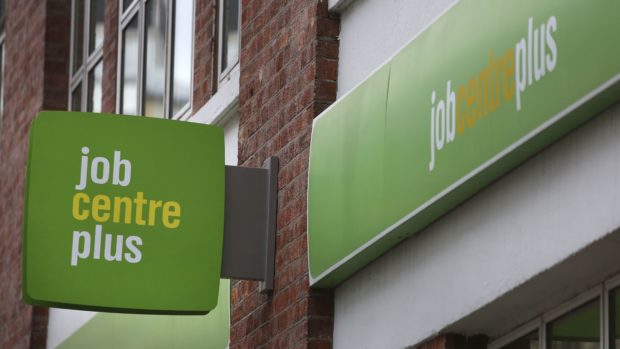
The unemployment rate in Scotland has dropped below the rest of the UK, official statistics show.
A release by the Office for National Statistics shows the number of people out of work in Scotland has fallen to 102,000 between August and October, down from 111,000 in the previous quarter.
The unemployment rate in Scotland in October was recorded as 3.7% among people aged between 16 and 64, falling from 4% in the three months before. The UK rate was 3.8% for the same period.
Scotland last outstripped the UK earlier this year, when the ONS recorded a 3.1% rate north of the border between February and April, before it spiked to 4%.
UK unemployment remained largely stagnant when compared to the quarter before, with a small decrease of 0.07% and a drop of almost 3% compared to last year.
Compared to the same period last year, the rate of people out of work has remained the same, despite rising by around 2,000.
Joblessness among young people aged 16 and 17 dropped 7.9% based on the same period last year, falling to 15.8%.
The 25 to 34 and 35 to 49 age groups had increases of 1.2% and 0.6% respectively year-on-year.
The unemployment rate for women in Scotland also fell below the UK average, to 3.4% compared to 3.5% – a British record for women in work.
The number of of people in work in Scotland rose slightly between July 2018 and June of this year – the most recent available data – by 0.3% compared to the same period last year, to just over 2.6 million.
More than 59% of the working age population in Scotland were reported by the ONS to have been in work, a slight drop from the year before.
Men in the workplace dropped by 11,012, while working women rose by nearly 19,000 – an increase of 1.5% compared with the same period last year.
Business Minister Jamie Hepburn said the Scottish labour market was resilient despite uncertainty raised by Brexit.
“These statistics indicate that Brexit may be negatively impacting employment in Scotland,” he said.
“However, there are signs of resilience in our labour market and positive results for those out of work.
“Scotland’s unemployment rate fell slightly over the year and is now just below the UK rate overall.”
He added the Scottish Government’s Economic Action Plan and Prepare for Brexit campaign will “help build economic resilience by offering grants and advice to support businesses to face the challenges ahead”, while its Programme for Government will reduce the disability employment and gender pay gaps and tackle race inequality in employment.
“Our Future Skills Action Plan supports this ambition and will help ensure Scotland has a skilled and productive workforce which is resilient to future economic challenges,” he said.
“Of course, Brexit remains the biggest threat to jobs, businesses and our economy.
“That is why the Scottish Government has consistently been clear that the best option for the future well-being and prosperity of Scotland, and the UK as a whole, is to stay in the European Union.”

Enjoy the convenience of having The Sunday Post delivered as a digital ePaper straight to your smartphone, tablet or computer.
Subscribe for only £5.49 a month and enjoy all the benefits of the printed paper as a digital replica.
Subscribe